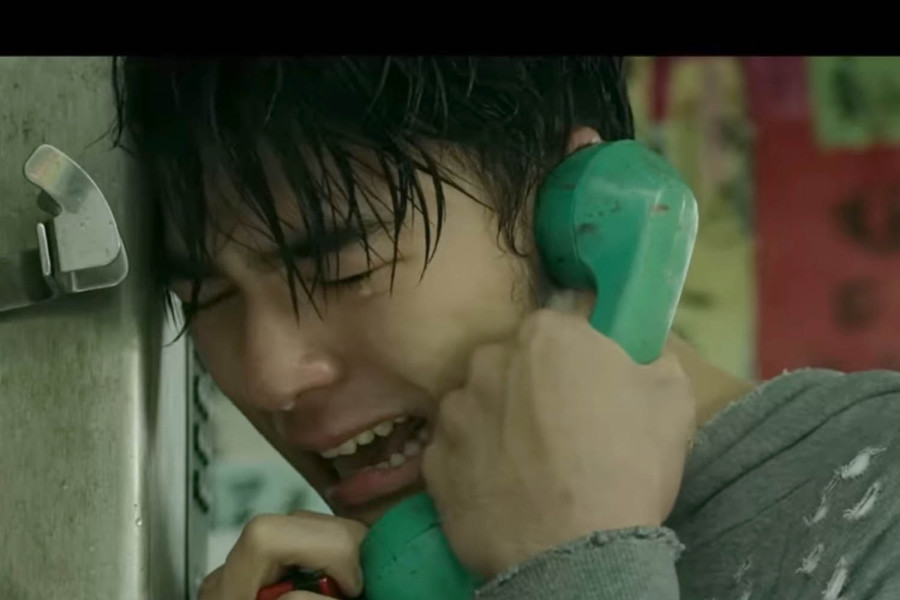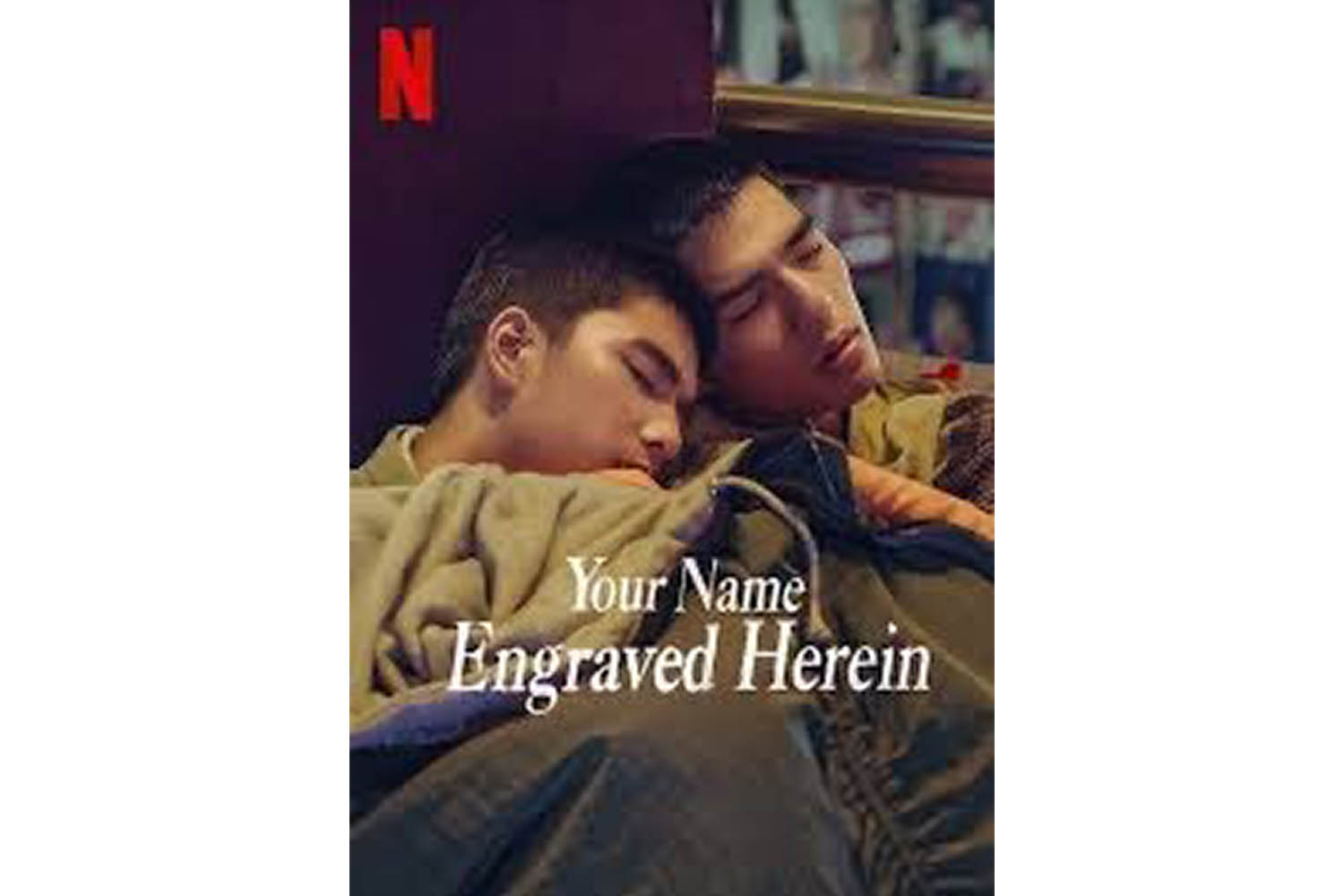Culture & Lifestyle
A tender love in a not-so-tender world
Set in 1987 Taiwan, ‘Your Name Engraved Herein’ explores the emotional journey of two boys grappling with homophobia and change.
Rishika Dhakal
Set against the backdrop of Taiwan’s martial law in 1987, ‘Your Name Engraved Herein’ is a queer teen romance between two boys that broke box office records in Taiwan.
The film revolves around the love story between two boys, A-Han (played by Edward Chen) and Birdy (Tsenf Ching-hua), who attend a Catholic High School. Birdy is a liberal arts student, whereas Jia-han is a 12th-grade student.
‘Your Name Engraved Herein’ is divided into two halves. The first half shows the boys’ life story and their struggle in a homophobic environment, whereas the second half deals with their reunion after 30 years of parting.
The movie uses voice-over narration by priest Oliver and Jia-Han, where the latter talks to the priest about his feelings, but the priest dismisses his love for another man. Each time A-Hans and Birdy’s relationship seems to blossom, the film returns to the conversation between Jia-han and the priest, cutting off the romantic tension between the two lovers. This repeated focus on the negative consequences of being gay reflects Taiwan’s still-evolving attitudes toward LGBTQ+ issues. While Taiwan became the first country in Asia to legalise same-sex marriage in 2019, the film reveals that struggles for acceptance remain.
It opens with a swimming pool scene where Jia-han and Birdy meet for the first time. Their accidental meeting of eyes, followed by a formal conversation, easily predicts that this restrained exchange will soon culminate in a romantic expedition.
Jia-han is obedient and plays by the rules until he meets Birdy. Unlike Jia-han, Birdy is strong-willed and unafraid to stand up for his beliefs. The film beautifully captures Birdy’s expressive side. For instance, right after witnessing a student being gay bashed by other students, Birdy goes to Jia-han’s bunk and starts cracking a walnut—an act that conveys his boldness and unspoken longing to be with Jia-han.
Jia-han’s literary narration in the background further enhances the film when he remarks, “Those sounds, on such a quiet night, sounded like heartbeats.”
As the romantic tension between the two boys starts growing, they decide to leave the city to pay their respects to the deceased president. On their way, they witness police harassing a man holding a poster that reads, “Homosexuality is not a disease.” Birdy gets shaken up by this incident and starts posing questions to Jia-han, initiating a deep conversation between the two.
This scene encapsulates Birdy’s openness to Jia-han and his willingness to know him better. Birdy also uses a coded phrase to communicate with A-Han, likely to elicit smiles and blushes from the audience: “If what you give me is the same as what you give to others, then I don’t want it.”
Similarly, the film also makes good use of symbolism to represent the mood of the protagonists. The scene where Birdy and Jia-han explore the projector and perform shadow puppets on the screen will let the audience know about Birdy’s aspiration to become a filmmaker.
The turning point of the film occurs when Birdy is attacked by Jia-han’s friends and labelled as ‘Queer’. This prompts Birdy to consider A-Han’s safety and contemplate whether pursuing their love would put him at risk. I felt Birdy made the mistake of taking matters into his own hands, deciding what was best for them and distancing himself from Jia-han.
With the pretext of saving Jia-han from societal harm due to their queerness, Birdy starts dating a girl called Ban-Ban. The film then shifts its focus to showing the grieving Jia-han, who remains steadfast in pursuing his love for Birdy. Finally, we see Jia-hans’s expressive and courageous side.
As the story unfolds, Birdy gets suspended from his school and is beaten by his father in the staff room. Jia-han intervenes, bravely confronting Birdy’s father. To get Jia-han off his back, Birdy even visits his parent’s house; however, Jia-han is willing to come out to his parents, demonstrating the depth of his feelings for Birdy. The catharsis of both characters’ pent-up emotions is showcased in a beach scene. This scene somewhat serves as a farewell scene, where the audience knows the lovers will part ways. The sea, a symbol of freedom and escape from societal conditioning, witnesses the coming together of both lovers, where they engage in a romantic embrace.

Similarly, the film has two powerful moments that present the culmination of the character’s repressed feelings, bringing them to a breaking point. After Jia-han’s friends severely beat Birdy, Jia-han offers to help Birdy shower, despite Birdy’s initial reluctance. The bathroom scene where both of them engage in sexual arousal highlights the film’s cinematography, which plays an essential role in enhancing the sensory experience of the two characters. This approach adopted by the director, Liu Kunag-hui, directly communicates the character’s inner emotions, articulating unspoken feelings.
Right afterwards, Birdy goes on to great lengths to ghost Jia-han. However, one day, after moving to new cities, Jia-han calls Birdy and makes him listen to a song. This moment marks one of the most potent scenes, where Jia-han and Birdy listen to a song together—a common trope in recent queer cinema like ‘Portrait of a Lady on Fire’ and ‘Call Me By Your Name’.
The song that Jia-han and Birdy listen to together has become a cultural phenomenon in Taiwan. It has amassed millions of views on YouTube and won the prestigious Golden Horse Award for Best Original Song.
In this way, music allows them to express feelings that remain unexpressed due to societal pressures.
They never communicated until 30 years after Oliver’s death, when they reunited in Quebec, Canada, in 2020. During this encounter, Birdy finally admits that he did love A-Han during their time at college. Jia-han offers to invite Birdy back to his hotel room, but Birdy politely declines it. They decide to part ways until Jia-han suddenly returns to Birdy and expresses his wish to keep him company for a little longer.
The directors keep the ending open-ended, allowing the audience to have their interpretation of whether the two characters stay in touch or go their separate ways. Often regarded as one of the most significant queer projects of 2020, the film captures the historical tension of queer life in post-legalisation Taiwan. It also shows the excitement of queer people about their newfound freedoms and their confrontation with the harsh realities of conservative social norms.
What I loved most about the film is its honest and raw portrayal of gay romance; as someone who grew up watching Hindi films such as ‘Dostana’, ‘Kal Ho Na Ho’, and ‘Student of the Year’, where gayness is stereotyped as a comic relief. In contrast, this film treats same-sex love with sincerity and depth, focusing on the emotional complexity and struggles.
Your Name Engraved Herein
Director: Kuang-Hui Liu
Cast: Tseng Ching-hua, Edward Chen, Mimi Shao
Duration: 114 minutes
Year: 2020
Language: Mandarin




 13.12°C Kathmandu
13.12°C Kathmandu













%20(1).jpg&w=300&height=200)

